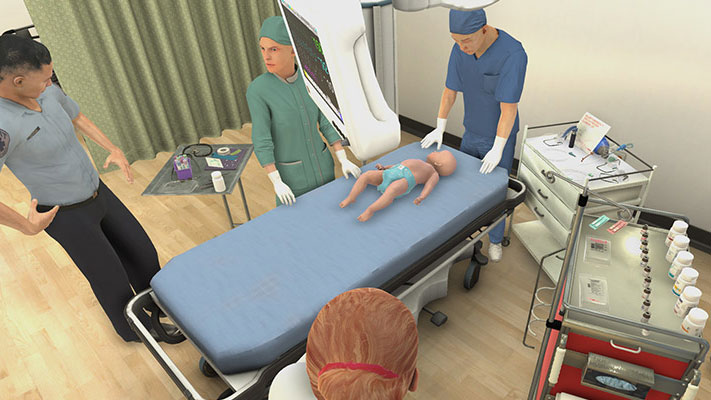Oculus has created a pediatric surgery simulation
This is no game

Sign up for breaking news, reviews, opinion, top tech deals, and more.
You are now subscribed
Your newsletter sign-up was successful
Oculus has announced that it has created a project that will help to train medical students how to respond in life-or-death situations. Oculus’ VR for good initiative, in partnership with Children’s Hospital Los Angeles has created immersive experiences that put students in life or death situations for young patients.
Surgery is a complicated thing to train for, not only because of the level of technical proficiency necessary to actually perform the surgery, but the emotional fortitude to do so under the pressure of knowing your accuracy in your performance could literally cost the life of the child on the table.
At present, much training for surgery is done using mannequins, and while every effort is made to make it as lifelike as possible, it is still detached from the emotional immediacy of the situation.
Now Oculus hopes to change that. In a statement from Oculus, it said: “Thanks to the immersive power of VR, we can replicate these training scenarios in true-to-life fashion, complete with paramedics rattling off symptoms, nurses and techs urging you to make a decision, and distraught parents praying for their child’s survival.”
- These are the best graphics cards for VR
Virtual Reality improving actual reality
This isn’t the first time that virtual reality has been used for medical training. In the past we have covered the first surgery that was streamed via VR, so that students could be immersed in the experience of being in a real operating room.
Also, AR has been considered as a training tool for the operating room by the Royal College of Surgeons. It envisioned a future where we could do away with cadaver training, using a Microsoft HoloLens to create a 3D hologram of a patient to be operated on.
It’s fascinating to see the potential applications of virtual reality technology outside of entertainment. Not merely for the good that it can do, but also the symbiotic relationship that entertainment and business can have in developing the platform.
Sign up for breaking news, reviews, opinion, top tech deals, and more.
The developments in gaming for VR are what make medical advancements like this possible, and having practical business uses for VR will mean that there is greater investment in it, improving the technology for all of us.
For a look at the way VR training is being used by the military, check out our video below:
- Here are the best PC games you can play right now

Andrew London is a writer at Velocity Partners. Prior to Velocity Partners, he was a staff writer at Future plc.